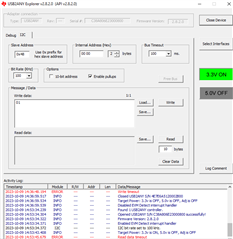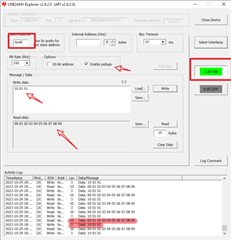Part Number: USB2ANY
Other Parts Discussed in Thread: MSP430FR5994, , UNIFLASH
Hi team,
I am using USB2ANY interface adapter to read the registers of the MSP430FR5994 MCU using I2C interface. However, I could not able to read the registers. Attached is the snapshot for your reference. Could you please help me in fixing this issue?






